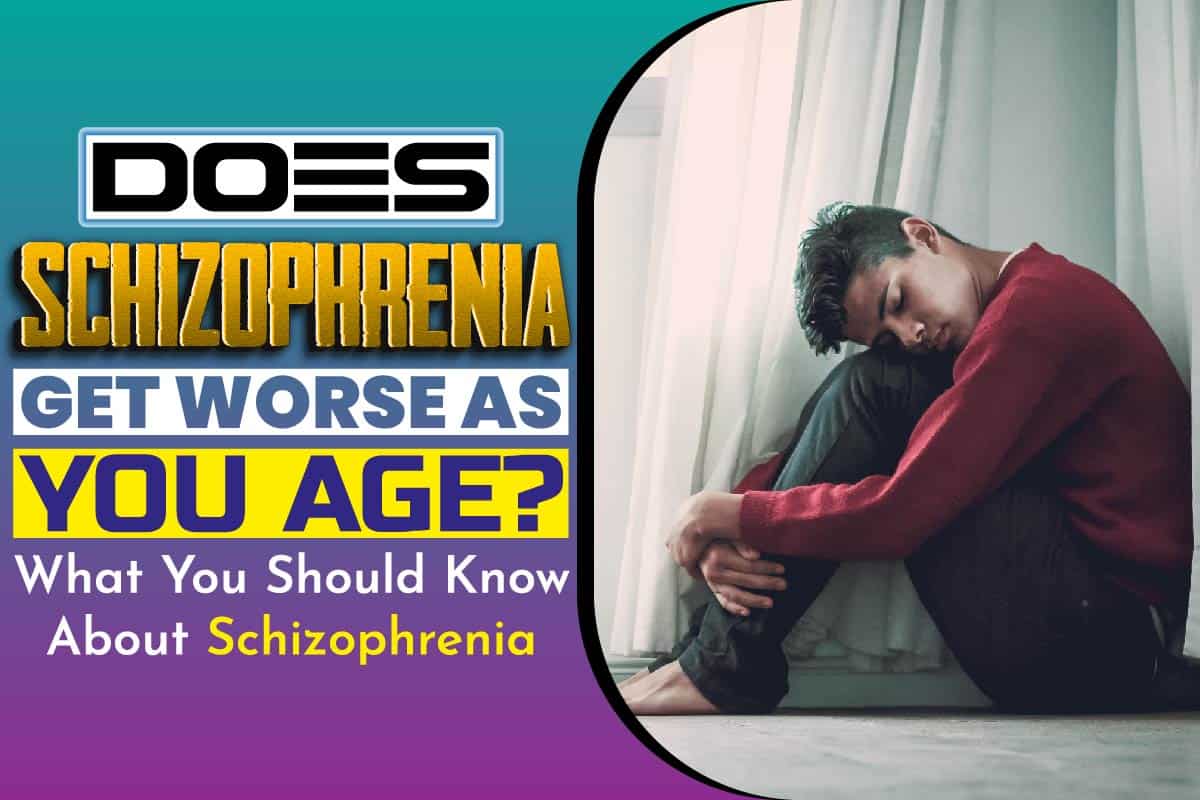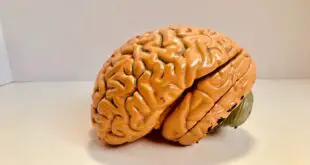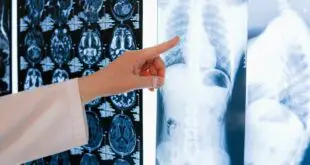Schizophrenia is a mental disorder that forces the victims to interpret reality abnormally. It is a condition that can result in a combination of symptoms, including hallucinations, extreme disorderly thinking, delusions, and diverse behaviors that will impair the daily functioning of the victim. Schizophrenia can be disabling when the victim doesn’t get help, and people who suffer from the condition will require lifelong treatment. Schizophrenia is a condition that develops gradually, and that is why it can be stopped o its track before it gets worse.
So, Does Schizophrenia Gets Worse as You Age?
Yes, the symptoms of Schizophrenia and the functioning of the victim will worsen over time, though, on few occasions, some symptoms may remain stable.
What Are The Different Types Of Schizophrenia?
There are seven different types or classifications of Schizophrenia, and there are some unspecified types of Schizophrenia worth noting;
The Paranoid Schizophrenia
This Schizophrenia is the most typical type of Schizophrenia and may likely develop at an older age than other forms of Schizophrenia. The main symptoms of this type of Schizophrenia are; hallucinations, and delusions but in most cases, the victim’s speech may not be affected.
Hebephrenic Schizophrenia
This Schizophrenia is also referred to as disorganized Schizophrenia, but it is a type that develops mainly between the age of 15 and 25 years of age. Symptoms of Hebephrenic Schizophrenia include confusing behavior and thoughts. Other symptoms may include disorganized speech patterns and the inability to communicate your feelings.
Most people who suffer from this condition show little or no emotion and expression on their faces, voice, and manners.
Catatonic Schizophrenia
This is the rarest form of Schizophrenia. It is characterized by sudden movements of some parts of the body. The symptoms, characteristics, and diagnosis of this condition are entirely different from other conditions.
A sufferer of this condition typically switches between being still and being active. The sufferer may not talk much and may mimic other people’s speeches.
Undifferentiated Schizophrenia
Undifferentiated Schizophrenia is characterized by some level of paranoia and other symptoms associated with Hebephrenic and catatonic Schizophrenia. The symptoms of this type of Schizophrenia don’t fit into a single type of Schizophrenia.
The Residual Schizophrenia
People who have Residual Schizophrenia are those who have some history of psychosis. The victims of this type of Schizophrenia do experience adverse symptoms such as poor memory, slow movement, lack of focus or concentration. People who suffer from this condition also develop poor hygiene habits.
The Simple Schizophrenia
This is a type of Schizophrenia that is rarely diagnosed, especially in Europe and America. It is characterized by slow movement, lack of concentration, poor memory, and poor hygiene- these are symptoms associated with many other types of Schizophrenia.
Simple Schizophrenia can be temporary or worsen, especially when the individual is addicted to the triggers of the condition. It starts early in life (Between teenage years and early adulthood) and progresses as one age. Interestingly, aggravated symptoms such as hallucinations, disorganized thinking, and delusions are rarely associated with this type of Schizophrenia.
Cenesthopathic Schizophrenia
This is a type of Schizophrenia where the victims often experience unusual body sensations. Treatment often goes beyond the usual medical attention.
Unspecified Schizophrenia
Certain types of Schizophrenia don’t fit into any of the specific kinds highlighted above. The symptoms can be unique, and the diagnosis can be specifically different.
Causes, Risk Factors And Complications Of Schizophrenia
It is essential to know the causes, risk factors, and complications of Schizophrenia to understand how you can manage the condition.
Causes of Schizophrenia
The causes of Schizophrenia are not known, but scientists that a combination of factors, including genetics, brain reactions, and adverse environmental conditions, may contribute to the development of Schizophrenia.
Particular naturally occurring brain chemicals, including neurotransmitters like glutamate and dopamine, can trigger Schizophrenia. Researches conducted with neuro-imaging have revealed the differences between ordinary people’s brain structure and nervous system and those who have Schizophrenia.
While researchers are unclear about the differences in the neuro-imaging examination for normal and Schizophrenia patients, there is a strong indication that this disorder is a brain disease.
Risk Factors of Schizophrenia
Though the causes of Schizophrenia are not known, certain risks are known to contribute to the condition more than anything else. Having a family history of Schizophrenia is one of the risk conditions that predispose someone to the disease.
Pregnancy and birth complications may expose someone to the condition. Malnutrition, for instance, and exposure to certain toxins or viruses may impact the brain development of someone from childbirth.
The use of mind-altering substances like psychoactive and psychotropic drugs, especially in teenage and young adulthood, can increase the risks of developing Schizophrenia, especially in adulthood
The Complications of Schizophrenia
When left untreated, Schizophrenia symptoms can quickly degenerate into more complex issues that can affect every area of life. Suicide, suicide attempts, or thoughts of committing suicide are some of the complications of untreated Schizophrenia.
Obsessive-compulsive disorder and some other anxiety-related disorders may also be complications from Schizophrenia. Similarly, abuse of alcohol, nicotine, and other drugs may also arise from the condition.
Inability to concentrate at work or school may be a complication. In some cases, Schizophrenia may lead to a financial crisis, which may lead to homelessness. Social isolation from friends and family may occur, and so are other secondary medical conditions.
Though aggressive behavior may be a complication of Schizophrenia, it is pretty uncommon. In many cases, a schizophrenia patient becomes victimized.
What Are The Symptoms Of Schizophrenia?
Schizophrenia often involves a wide range of issues with cognition, emotions, and behavior. The signs and symptoms of this condition may vary from one individual to the other. In general terms, symptoms of Schizophrenia may include delusions, hallucinations, and impaired ability to handle daily functions.
Delusions
Delusions are described as false beliefs that are not based on reality. A person who has Schizophrenia may think they are being harassed or harmed, and they may take specific comments as insults. Sometimes, patients may believe that a major catastrophe is about to occur. Delusion is one of the most prevalent symptoms in most schizophrenia patients.
Hallucinations
Hallucinations are as common as delusions in people who have Schizophrenia. This symptom is characterized by seeing and hearing things that don’t exist. Hallucinations can occur in any of the senses, but they are most prominent in the sense of hearing and seeing.
Disorganized Thinking and Speech
Disorganized thinking is very evident in the speeches made by someone who has Schizophrenia. Effective communication in patients can become impaired, and the answers they give to questions may be entirely or partially unrelated. Schizophrenia patients are known to put together words that are hard to understand.
Disorganized and Abnormal Motor Behavior
Abnormal or disorganized motor behavior can show in different ways. This symptom often indicates in different ways and may include an unpredictable agitation or silly, child-like behavior. It becomes difficult for the victim to handle a specific task because their behavior or reaction is entirely different from the goal.
The resistance to instructions handed to the victim, taking inappropriate, bizarre posture, excessive movement, and lack of response are just some of patients’ aggravated disorganized motor behavior.
What Are The Symptoms Of Schizophrenia In Teenagers?
While most Schizophrenia occurs as we age, it is possible to suffer the condition in teenage or young adult age.
Symptoms of Schizophrenia in teenagers and younger adults are quite similar to those in adults, but in this case, they can be difficult to diagnose. The commonest symptoms of Schizophrenia associated with younger people are;
- Sudden withdrawal from friends and family.
- sudden drop in performance at school or work.
- Insomnia
- Persistent irritation and depression
- Loss of focus and motivation.
Teens are less likely to suffer from delusions and visual hallucinations.
Prevention And Treatment Of Schizophrenia
Lack of awareness is the number one reason why schizophrenia patients don’t see a doctor at the right time. Most people don’t admit they suffer the disorder until it becomes so aggravated to the point where secondary symptoms show up.
Though there is no sure way of preventing Schizophrenia but there are ways of reducing the non-hereditary triggers of the condition. The treatment plan offered to a patient will depend on the type of symptoms. In most cases, anti-psychotics like Risperidone, Paliperidone or Aripiprazole may be recommended for temporary or prolonged period for the patient.
Diagnosis for Schizophrenia is done by physical examination, tests and screenings, and psychiatric evaluation. Secondary or assisted treatment options for patients may include; social skills training, individual therapy, family therapy and vocational rehabilitation with assisted employment.
The combination of medical treatment and social skills training can help many schizophrenia patients recover and get back on their feet while others may have to be treated on the long term.
You May Like These Articles As Well:
7 Tips On How Do You Find Happiness In Life If Nobody Likes You
Check Out The Difference Between Hypnosis And Brainwashing
 Being Human
Being Human




